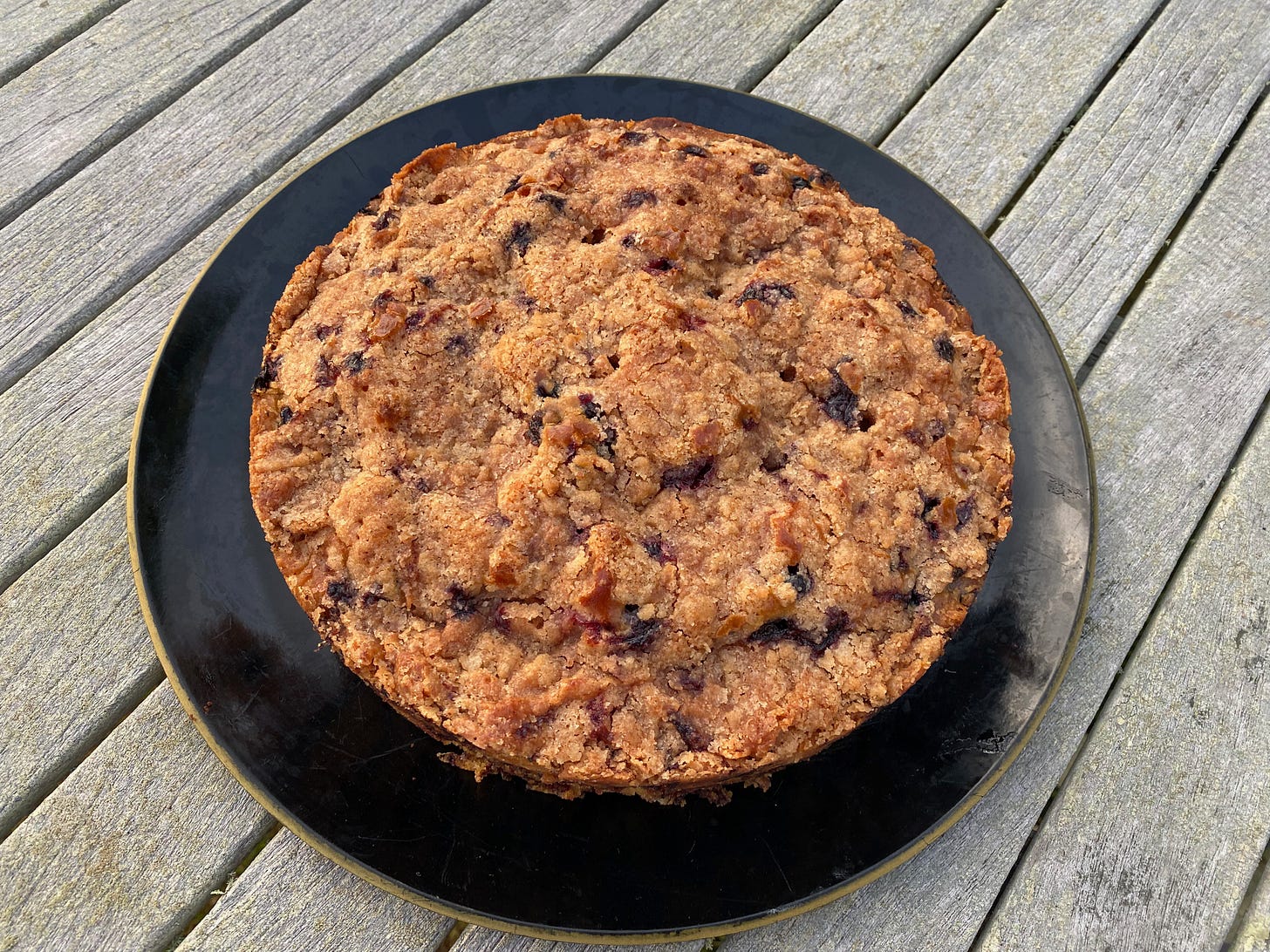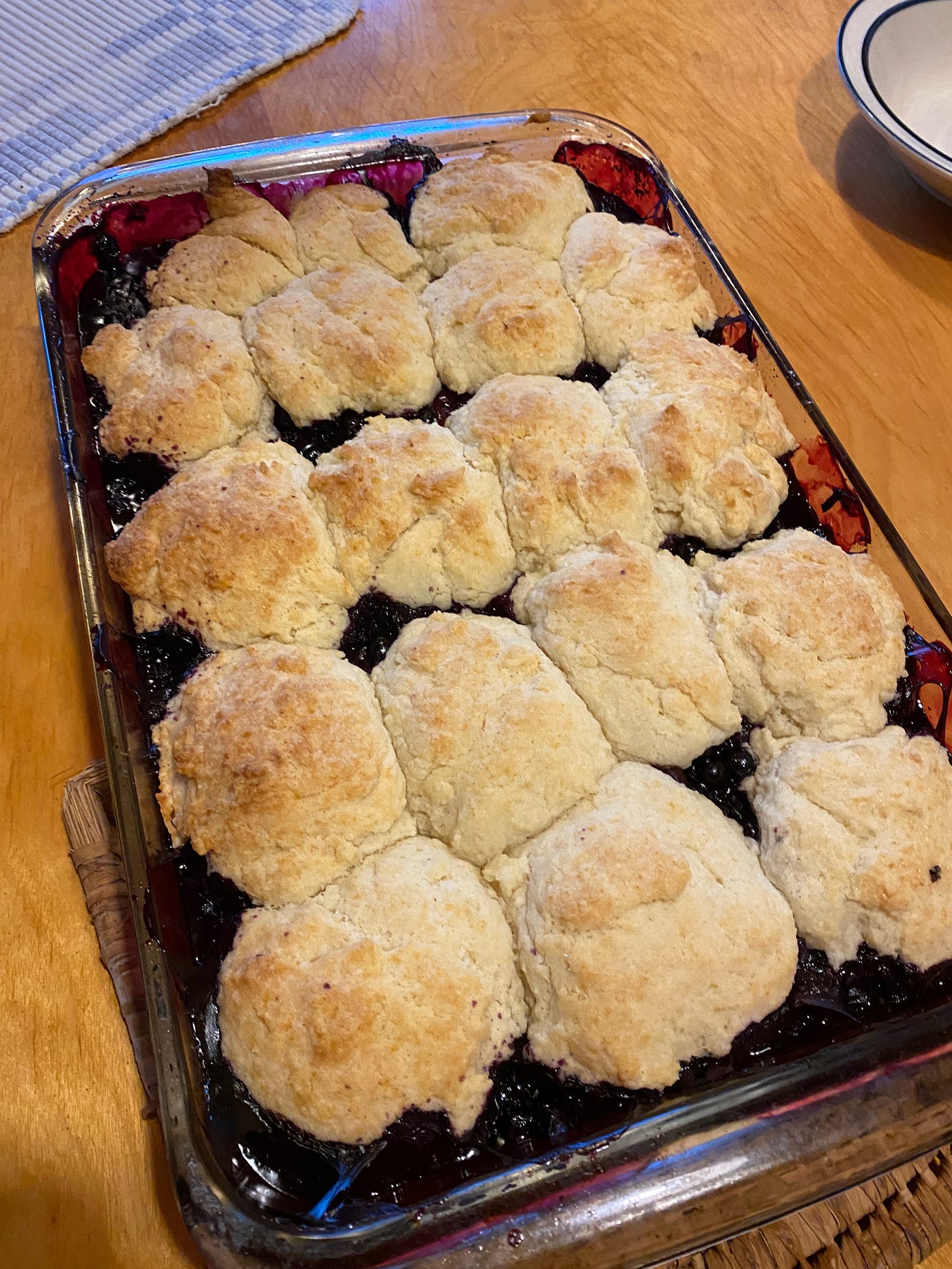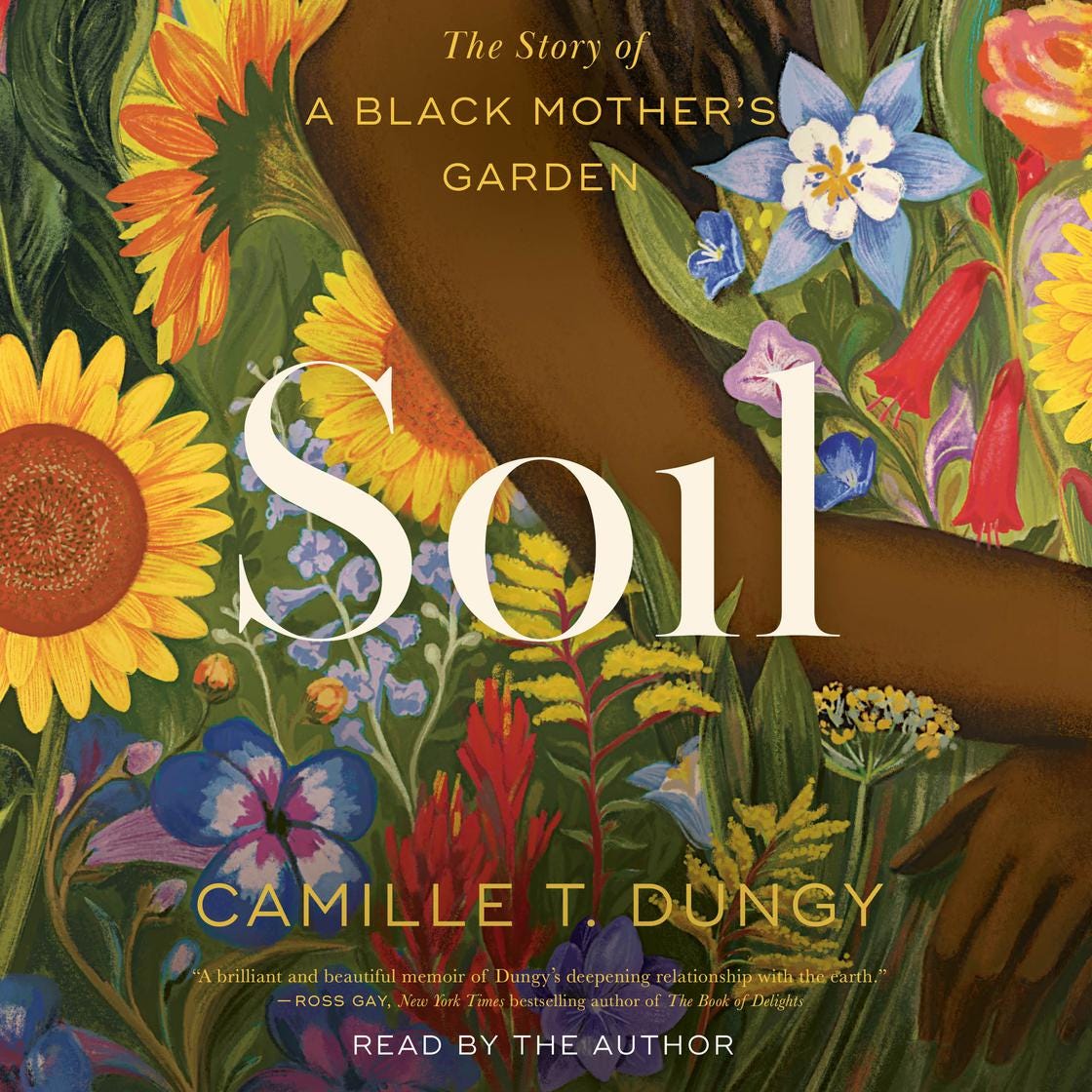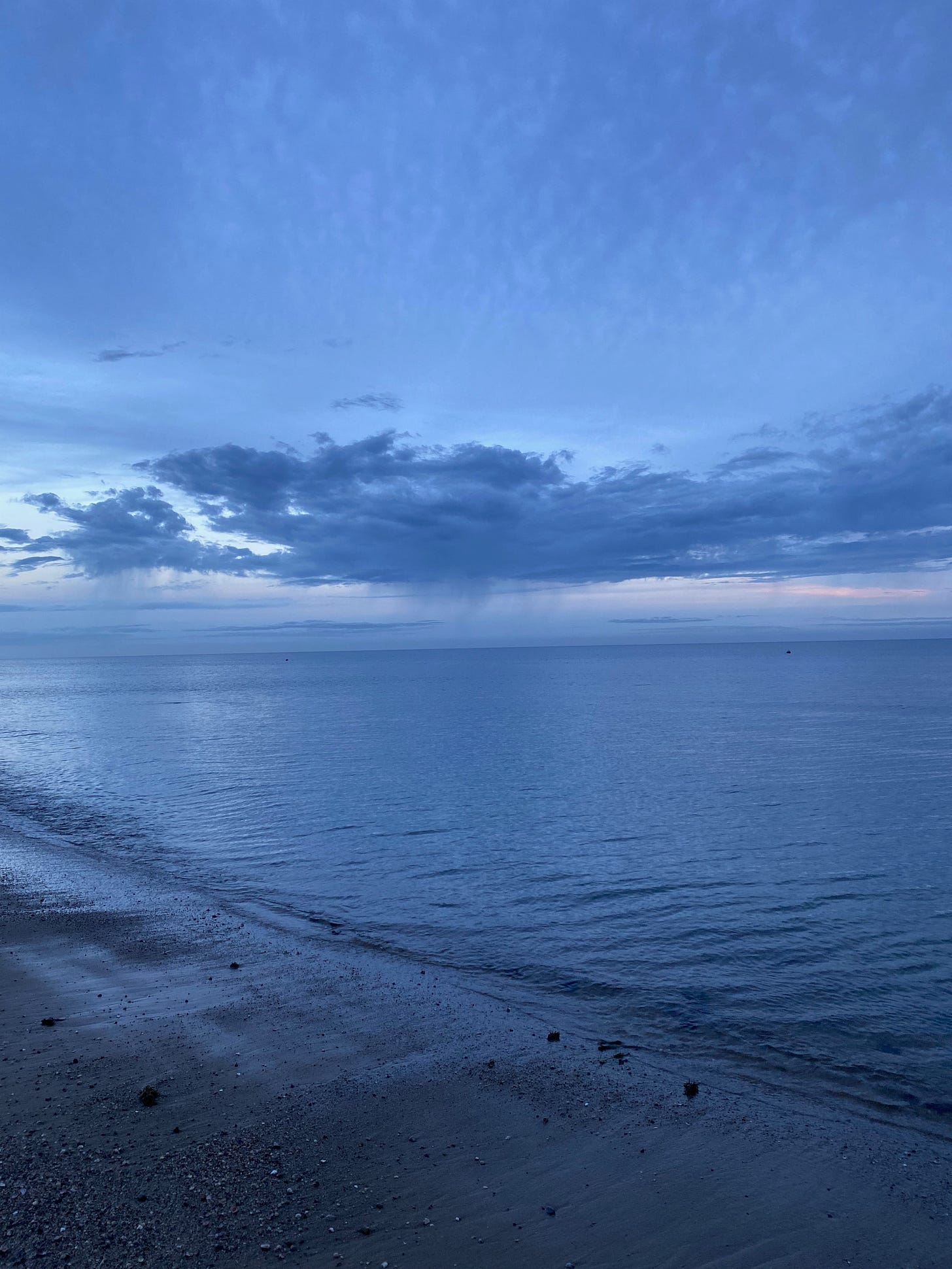Greetings, book and treat people! Thank you to everyone who commented, emailed, or otherwise reached out with kind words about last week’s newsletter. I’m glad it resonated with so many of you! To be honest, I’m still in the mucky middle of figuring out what I want Books & Bakes to look like in the future. I might play around with the structure in the next few weeks. I might not. We’re all going to find out. I’m grateful that you’re here with me.
Queer monsters is shorthand for what’s happening in these three books—they aren’t about monsters so much as they’re about queer women living in and with violence—reacting to it, imbibing it, transforming it, escaping it, being caught by it, rebelling against it, drowning in it. They are deeply complicated, infinitely layered novels about the intersections of pleasure and selfhood and isolation and otherness and despair. I can’t stop thinking about any of them.
The Books
Backlist: Boulder by Eva Baltasar, tr. Julia Sanches (Fiction, 2022)
What a surreal book. The haunting, impenetrable distance at which the narrator holds herself apart from everyone and everything (including the reader) paired with the intensity of how she thinks about the world—nothing about it feels real. The narrator feels like a ghost, like someone only present inside her own head.
The narrator, nicknamed Boulder, is a cook on a merchant ship. She eventually meets and falls in love with a woman, Samsa, and gives up her solitary life at sea to settle down with Samsa in Iceland. She narrates the events of her life, which become more and more domestic and more and more disturbing, with incredible astuteness and beauty:
The thing I enjoy most about my job is handling food while it’s still whole, when some part of it still speaks of its place in the world, its point of origin, the zone of exclusion that all creatures need in order to thrive. Water, earth, lungs. The perfect conditions for silence. Food comes to us wrapped in skin, and to prepare it you need a knife. If I’ve got one skill in the kitchen, it’s carving things up. The rest is hardly an art. Seasoning, tossing things together, applying heat…Your hands end up doing it all on their own.
I try to picture her out in the world, doing the things she does in the novel—running a food truck, sitting in the pub with her friend, doing chores around the house, and then, wildly, becoming a parent even though she doesn’t want to be one—and I can't. The prose is precise but far away. It’s like looking at something through a backwards lens. Everything is sharp and blurry at the same time. It’s chilling. The narrator recounts these monumental events (like telling her girlfriend, sure, yes, let’s have a baby, even though she does not want a baby) with a beautiful, detached calm. I could not understand a single decision she made. I was fascinated by her.
There’s this one line I can’t stop thinking about. The baby is a few months old, and the narrator says something along the lines of: It was the first time I was alone with the baby (I’m paraphrasing). It shook me. But isn’t this how heterosexual relationships are expected to work? Isn’t this what society still teaches us about fatherhood: how little it requires, how little men are asked to give of themselves.
In so many ways this queer woman is a stereotypical asshole dad who’s pissed her partner doesn’t want to have sex anymore and doesn’t know what to do with a baby. But also: who knows what she is because despite the intensely close narration, she doesn’t give anything away. She doesn’t want a kid, she goes along with her partner’s desires anyway, the whole exhausting, expenses process, I was screaming at her to get out!, and yet—she loves the kid. She loves something. It’s hard to say what she loves because she’s so opaque.
Then there’s the way Samsa embodies this all-consuming, motherhood-subsumes-identity, the baby is perfect and I am a perfect parent, this is what I was born to do mode of parenthood. It’s creepy AF. It’s another reason why this novel does not feel like realism to me. Everything is heightened and nothing makes sense. It’s a horror story about heteronormativity, about the spiral of agony that ensues when a woman goes along with her partner's dreams because she can't or won’t articulate what she wants. What does she want? Does she know? Do we know? Is it even possible to know, when you turn yourself to stone the way she does, when you dissect everything but yourself, when you touch the world only at a distance? This 100-page book asks a thousand questions and answers none of them. I don’t know what to make of it but I couldn’t look away.
Frontlist: Chlorine by Jade Song (Fiction, 2023)
Would you rather be a mermaid than a girl? Would you build yourself new out of chlorine and salt, out of longing and loss, if you could? Would you turn your body into violence, rather than bear the violence done to it? Would you turn your queerness into a language of water and motion, into something dangerous and old, if queerness in its human shape hurt too much? Would you rather be something feral, something untamable, something fierce as waves, a body as powerful as legend, than something small enough to be touched?
And what if the thing you long to be and are is a shape the world has pushed you into? What if the truth in your bones is a truth forged from rage, from having no choice, from the exhaustion of living in a body that is treated like a thing? How do you know what is true about your true shape? You come alive in the water. The strength in your arms, your tail, your mermaid muscle, makes you safe. You find freedom in shedding your girl-skin like water off your scales. You break yourself to make yourself whole, but the world has broken you, too. Which breaking came first? Can you tell the difference between the scars?
You want so fiercely. Your reflection in the water is mermaid, is yours. What do you want because you want, and what do you want because of the lies men have told you about your body? What do you want because you want, and what do you want because you can only way see one way out of the trap—to become unrecognizable?
How do you love yourself in all the murk? How do you love your beautiful innate wildness when everything around you says: you are too wild to be loved. You are too mermaid to be loved. You are too powerful to be loved.
Would you turn yourself into a mermaid to get free? Would you escape your girl-self to get free? As a girl, as a mermaid, as a being with skin, porous and opening and hungry, how do you get free.
This is a raw and rushing book about a queer Chinese American teenager who’s a competitive swimmer, and a mermaid—or in the process of becoming one. The process is violent, sometimes gory, and visceral. I loved it.
Upcoming: Land of Milk and Honey by C Pam Zhang (Speculative Fiction, Riverhead, September 26th)
Sometimes I can feel my heart beating while I’m reading. I become acutely aware of myself as a physical being—my skin, my breath. It’s a visceral reaction, this noticing-of-self, to words that feel like they’ve been carved from the bedrock of the earth, drawn up and translated out of the sticky, impossible center of human experience. It doesn’t happen very often. It happened while I was reading this extraordinary novel.
This novel is a thousand folded layers, a geode cracked open and stitched back together—a shimmering, impossible, intricate pattern of wonder and greed, devastation and delight. It’s a symphony of scents and pain, an ode to pleasure, a treatise on the muck and filth and gore and ecstasy of food. It’s about bodies and living inside them, and isn’t it so strange, so unbelievably wild—our tongues, our cravings, the way we crash into each other, the way we wreck and soothe each other. It’s about violence that simmers and explodes, violence that beckons and seduces. It’s about looking the other way. It’s about ease and money and comfort and excess and the world, humming along. The small world, humming along as it breaks.
The story is about an Asian American chef—driven, isolated from her family, lonely, talented—who finds herself stranded in Europe when the U.S. shuts down its borders. A poisonous smog has settled over the globe, destroying most of the world’s crops. The resulting famine kills people everywhere, and most of the food the unnamed narrator loves has vanished. She longs for bitter greens, fresh berries, dairy. But the plants and creatures that have fed humans for millennia are now extinct. Desperate, she takes a job at a mountaintop research facility in Italy, cooking extravagant meals for billionaire investors. The mountain sits high and clear above the smog; it is lush and green and overflowing with life in a world that is dead and grey. Her mysterious employer grants her access to ingredients she never thought she’d see again: figs, cream, strawberries. “I fled to that country because I would have gone anywhere, done anything, for one last taste of green sharp enough to pierce the caul of my life,” she says. She is not exaggerating.
On the mountain, she meets her employer’s daughter, Aida—a brilliant scientist with a vision for new world. She throws herself into a life of pleasure and food. Slowly, as the world unravels around her, the truths of the life she’s living in this isolated utopia for the uber-rich become sharp and begin to cut. She confronts everything she’s been running away from, including her own complicity.
Zhang writes about food, bodies, and pleasure with stunning and exquisite ferocity. Her prose is violent and sensual. Nothing is severed from itself. Food is bloody, ruptured, slit. Sex is heated and raw. The needs of the body are immediate and conflicting. It is all messy and entangled.
Yes to oysters swollen through butter. Yes to thighs cooled on glass, my hand a hot knife between. Yes to prosciutto, its salt slick; to avocados bursting, ripe. Our teeth clanged. I tasted blood and chocolate.
I’ve never read food writing like this, so unflinching, so aware of the creature-ness of taste, so willing to confront the fact that eating is also death, that pleasure often comes with unbearable costs.
I don’t know how to explain the experience of reading this book. It is deeply uncomfortable. The narrator is so infuriating, but so complex, so human. If she is a monster, we are all monsters. And aren’t we all, monsters? Aren’t we all hungry? This novel is so beautiful and so rending. How is it possible to write so beautifully about such violent excess? How is it possible to slip a strawberry between your teeth on a June evening and let its sweetness flood your mouth while the wildfires burn and the fascists get elected and the pandemic rages and your beloveds and their beloveds are dying? This entire book is like biting into that strawberry. It isn’t possible, and we do it anyway.
Here is the unbearable tension at the center of this book: what does it mean to choose to bite into the strawberry? How do we hold onto sweetness without losing what ties us to each other? It’s not a dystopian novel, not really, not truly. It’s about this world, our world, right now, broken and breaking, overflowing with sweetness. It’s about what’s possible and what isn’t and what it feels like to hold and live through that contradiction.
This is one of the best books I’ve read in some time. It’s deeply, quietly queer. It is imaginative and subtle and surprising. There was a moment, two-thirds of the way through, when I wasn’t sure if Zhang would be able to finish what she started—I was so deep in the muck I couldn’t see a way out. I was disgusted and distraught and sad and full of rage and shaking.
But the ending is miraculous and vast. I will never be done with this story and its implications, its physicality, its beautiful, rending witness to humans, bodies, earth—breaking. It’s out September 26th, and you can preorder it here.
The Bake
I’m in the midst of rethinking the structure and format of the newsletter. Things are going to be in flux for a while, and I’m not sure what this section will look like in the future. I’ve been less and less inspired to share recipes recently, and I’ve been envisioning what a more expansive interpretation of ‘The Bake’ might look like. For now, here are two luscious blueberry desserts I’ve enjoyed recently.
Blueberry Crumb Cake
My family and I picked about 20 pounds of wild blueberries a few weeks ago. The first thing I made was this incredible blueberry crumb cake from Smitten Kitchen. It is tender and moist and chock-full of blueberries. The crunchy caramelized sugar topping is divine. A+, no notes.
Blueberry Duff
My mom made blueberry duff! You can read all about it (and get my family’s recipe) here, although we’ve updated the recipe since I wrote it down. My mom has been using the Chez Panisse blueberry cobbler recipe for the dough for the past few years, and it’s even more delicious.
The Bowl & The Beat
The Bowl: High Summer Pizza
I love making pizza. You can put basically anything on it, and even if you make your own dough, it’s pretty easy (and even easier if you don’t)! This dough recipe only has four ingredients and takes 3 minutes to mix up. Also: pizza makes the very best leftovers!
Thinly slice a few onions and sauté them in butter until they’re nicely browned and starting to caramelize, about 20 minutes. Meanwhile, cut the kernels off two ears of corn. Slice a tomato, or, even better, halve a pint of cherry tomatoes. Thinly slice a big handful of basil leaves. Slice some fresh mozzarella and then tear the slices into small chunks. Preheat the oven to 500. Roll out the dough of your choice and put it on a peel (if you’re using a pizza stone), or an oiled baking sheet if you’re not. Spread a layer of ricotta over the dough. Then layer on the onions, corn, tomatoes, and sliced mozzarella. Bake for 12-15 minutes, until the cheese is melted and the crust is golden brown. Sprinkle the basil leaves on top. Yum.
The Beat: Soil by Camille T. Dungy, read by the author
I’m enjoying this garden memoir! It’s about so many things: Dungy’s garden in Fort Collins, Colorado, the history of racism and exclusion in environmental and nature writing, motherhood, writing, Black womanhood, the pandemic, poetry, academia, partnership. Dungy is a wonderful writer and her narration is so warm and animated.
The Bookshelf
Around the Internet
On Book Riot, I made a list of some of my favorite 20th century queer lit. I came up with some very silly reasons to shelve your books in rainbow order. I rounded up some award-winning memoirs you’ve probably never heard of, and some anti-beach reads for everyone who doesn’t like “summery” books. If you’re looking for some disabled poets to read for The Sealey Challenge, I’ve got you covered. I also wrote about why the best time to read reviews is after you’ve finished the book.
In other news, Kit Gorton, an intern at the Queer Zine Archive Project, recently interviewed me and some of my fellow farmers and zine-makers about the years we spent making the First Root Farm CSA News Zine back in the day. It was a super fun interview!
Queer Your Year
It’s time for the July raffle! This month’s prize is a Queer Book Bundle from Arsenal Pulp Press. It includes Any Other City by Hazel Jane Plante, The Future is Disabled by Leah Laksmi Piepzna-Samarasinha and A Dream of a Woman by Casey Plett. They are all incredible! You can submit your game card and find all the details here. You have until August 6 to submit. The winning prompts this month are: 3, 11, 23, 28, 32, 35, 45, and 46.
As always, don’t forget about the super fun prize packs! Everyone who submits a game card gets one, and they ship internationally. And please come join the Queer Your Year discord if you haven’t already! If you’re stuck on a prompt (or just want to chat about queer books), it’s the place to be.
Recs!
Prompt 10: A work of fiction by a disabled author
Disability Pride Month is almost over, but it’s always a great time to read books by and about disabled folks. I made a list of some of my favorite fiction by disabled authors here. My two underrated favorites are Please Read This Leaflet Carefully by Karen Havelin and Weekend by Eaton Hamilton.
Prompt 39: A Lambda Award finalist or winner
Where do I start? There have been so many incredible Lammy finalists over the years! These are my 30 favorite finalists from 2023. A few I want everyone to read include Another Appalachia by Neema Avashia, Before We Were Trans by Kit Heyam, and God’s Children are Little Broken Things by Arinze Ifeakandu.
The Boost
In the past few weeks, there has been catastrophic flooding in my home of Western Mass and in Vermont. Homes and businesses have been destroyed. Many farms have experienced near total crop loss. Bookseller, writer, editor, gardener, and my internet friend Elisabeth P-W expressed how I feel about it all—somebody’s broken heart, somewhere’s devastation, every day—in this beautiful post: “The idea of elsewhere leads nowhere. There is nowhere to set this grief down.”
A non-comprehensive list of ways you can support farms, businesses, and communities in the wake of the flooding:
New Farms for New Americans Flood Relief Fund: This money will go directly to many immigrant farmers in Vermont impacted by the flooding.
Somali Bantu Farmers Flood Relief Fund. This money will go directly to farmers who grow as part of the New Community Farming Cooperative in Springfield, MA.
Grow Food Northampton Community Farm Flood Relief Fund: From their website: “This fund specifically supports relief efforts, prioritizing the farmers who rely on their land for their livelihoods and who experienced the greatest losses, and the community gardeners who rely on the harvest from their plots for sustenance.”
The Benson Place 2023 Crop Loss Fund: The Benson Place is one of my favorite places in the state. It is utterly magical; the farmers are incredible stewards of the land. Due to a heavy frost in late May, they lost 95% of their wild blueberry crop.
As always, a little bit of beauty to send you on your way: One of the best parts of spending time on my beloved island is taking sunrise walks on the beach.
Catch you next week, bookish friends! I have no idea what next week’s essay will be about, but if you want to read it, you can subscribe here.










I absolutely LOVED Boulder. I bravely gave it 5 stars. I’m not in a place to judge the skill of a writer’s ability to construct a story...but I know how it makes me feel. I was mesmerized by Boulder. And then dumbfounded. It’s fantastic.